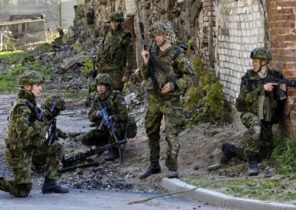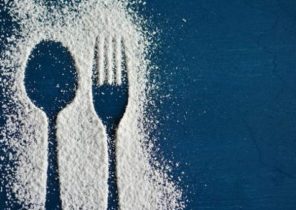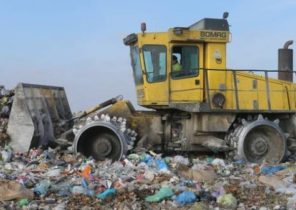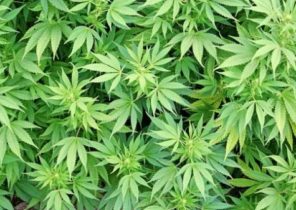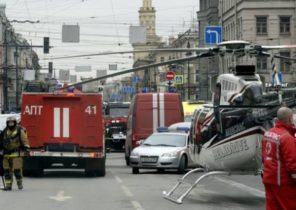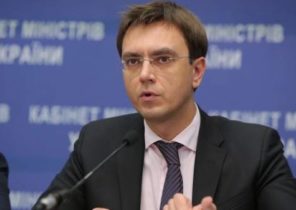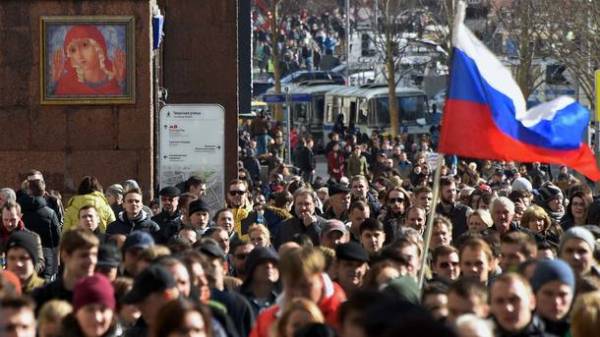
After the introduction of sanctions against Russia, the situation in the country has not changed much: in Moscow there is no shortage, and prices in the capital’s restaurants even fell; at the same time, in the Russian province is poverty. This writes Shelley of Karabell in Forbes.
The author explains the situation by the fact that in the post-Soviet Russian economy was no redistribution of wealth: those who have held senior positions, when communism collapsed, they took with them everything they could; others took what was in front of them, and sold it wherever they could find a market.
“By the time when President Vladimir Putin came to power in 2000, most of the core assets belonged to either the state or small group of individuals who have received these assets from the state in exchange for political obedience and loyalty”, is quoted in the words of economist Andrei Movchan, Director of the economic policy program of the Carnegie Moscow center.
Karabell and Movchan recently met in Moscow to discuss the impact of sanctions and the future of the Russian economy.
“Russia is not only country that can endure hardship like no other, but it also used to function without money. Favors and personal benefits are equally valuable, if not more desirable goods that can be traded. And even under communism, everyone, including the government, depended on the black market of goods and services. It is a secret similarity, which Soviet Russia had capitalism, at a time when private enterprise could end up sending to the GULAG if you’re lucky, or cause death. Therefore, no one should be surprise that the best with the change of economic ideology in one night managed those representatives of the black market who have had experience in private enterprise and who have not experienced the innate fear of the average Russian before an independent action,” noted Karabell.
He notes that in 1990-e years, followed by a transition period consisting of a liberal economy, but without control. “Russia was the Wild East. The inability of President Boris Yeltsin to run a government led to the impasse in the State Duma and chaos in the business world, which entailed not only corruption, but sometimes murder. The ascent of Putin to power largely led to a cessation of chaos and the restoration of state control over oil production and trade business of the country, which was lost in the 1990-ies, during what was then considered “privatization”, – stated in the material.
Putin, according to Movchan, “in 2003, arrested the rebellious oligarch Mikhail Khodorkovsky and nationalised his oil company, YUKOS, and made sure that all the rest of the oligarchs got the message and obeyed”. According to Movchan, by 2008 up to 70% of the Russian budget directly or indirectly consisted of revenues from hydrocarbon exports. By 2013 no more than 10% of the country’s GDP was accounted for by an independent private sector, or the production of non-metallic resources.
Meanwhile, the article says, although inflation in 2013 was 6.5%, while GDP growth did not exceed 1.3%, real wages – by the policy of Russia, which Movchan calls “reckless,” exceeded by 11.4% “This was also a period when many people sold their businesses to the state. Took their money and went abroad”, – says Movchan.
“This meant that the state controlled more than 70% of the business – more than during his stay in power (the last Communist leader) Mikhail Gorbachev, when state control was 60%,” he says.
SEE ALSO
- In the United States to discuss a robust response to the expulsion of diplomats from Russia – media
Today, perhaps 25% of GDP is in the hands of the private sector, according to Forbes.
Movchan said that can not stand the statistical data on the economy provided by the state, because, in his words, “more than 30% of them classified as “secret”. Generally, it is believed that the secret budget used to Fund the military-industrial complex and security agencies, but there is indirect evidence suggesting that these funds can be used for other purposes. They can range from funding “friends of Russia” abroad, closing up gaps in the balance of state-controlled companies and for senior officials”.
The publication claims that the abrupt collapse of oil prices in 2014, not Western sanctions, created the greatest difficulties for the Russian economy. Western economists predicted a quick collapse after the imposition of sanctions and lower oil prices; however, two factors have enabled the country to survive the shock:
- the government and businesses have accumulated cash reserves during the oil boom, the Kremlin had amassed three times the expected level of imports in foreign exchange reserves, the enterprises had received substantial funds and, according to Movchan, “citizens were more than $ 250 billion in banking savings and perhaps as much cash”. People stocked up on durable goods and housing conditions in Metropolitan areas has improved because of increased demand and capacity to pay;
- despite state control over most companies, Russia continues to enjoy the benefits of a liberal economy. “Cross-border capital flows are not restricted,” the report says. It is also stated that there is no price control on most goods and services, wages are determined by market forces, and the exchange rate is determined on the free market, albeit with some intervention by the Central Bank.
The country managed to withstand the doubling of the Central Bank refinancing rate in December 2014, and the markets have calmed down, as soon as the Kremlin promised not to take such drastic action again.
As a result, 1% of Russians with money are able to move them and to invest abroad; those who do not have huge resources, was replaced with imported foreign goods domestic and spend their holidays in Sochi, and not on the Mediterranean. This happened when the ruble collapsed in 1997; the Russian domestic economy may actually benefit from this and diversify – perhaps accidentally – because of the need to meet the demands of increasingly sophisticated consumers.
However, the author argues that the government has no real plan to diversify the economy, it prefers to wait for a recovery in oil prices, hoping that the desire of the West to renew sanctions will also disappear.
SEE ALSO
- The EU will continue sanctions against Russia: the four reasons
At the same time, Karabell and Movchan believe that, despite the fall in GDP in US dollars at the end of 2016 by 40% compared to 2013, the country will not be riots and significant obstacles. It is estimated that in 2016, Russia’s GDP per capita was $ 8,500 US dollars, which provided the country with 70 in the world ranking of the International monetary Fund, on a par with Turkey and Mexico. A modest result, but not disastrous. And, despite the fall in GDP after the recession and the imposition of sanctions, says the man, “even that the rapid decline of Russian has returned to relatively stable levels in 2007.”
This was long before the introduction of Western sanctions. Indeed, the economist asks whether the West to be in some way in a difficult situation, when in the future will arise again the issue of sanctions against Russia. “This can be a problem for the West,” he said. “If they lift sanctions, they will lose; if the sanctions remain, then Putin will be the scapegoat that you can blame all your failures.”
However, informed Polish newspaper Rceczpospolita wrote that the new US sanctions showed the impotence of Russia. In the publication are confident that “big words and demonstrative gestures lies the impotence of the Russian Federation and its inability to respond to the decision of Washington.”
